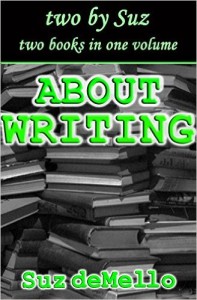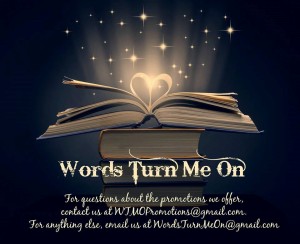
Much of deMello’s advice can be found in many other treatises, but that doesn’t mean you shouldn’t read her book. In fact, quite the contrary. Writers, especially those who are struggling, should read deep and wide when it comes to matters concerning the craft of writing. I liken it to my experience with math in high school. When I was a freshman, I took Algebra I with Mrs. N. Not only did I get an A, I also understood it and even found it somewhat enjoyable. My sophomore year, I took Geometry, again with Mrs. N, and once more found it fun and easy.
But let me assure you that was the last math class I felt that way about.
See, my junior year—being a glutton for punishment—I took both Algebra II and Trigonometry, and both classes were with Mr. W. Mr. W was definitely a brilliant guy and most of the students in the chairs surrounding me seemed to get what he was saying. Me, though? I might as well have been in Greece…or Mr. W could have delivered his message in Morse Code, and I likely would have gotten as much out of it. I was happy to take a hard-earned C in both classes and decided then that math and I would part ways. But most of the students in his classes did quite well and, looking back, I knew of students who had struggled in Mrs. N’s class the year before. Fast forward to my teaching career, and I can tell you that some students learn well from one professor’s style of teaching while others do much better with someone else. If we all learned the same way (or the first time), there would be but one book offering advice on the writing craft and it would be all we’d need.
I appreciate a number of things about deMello’s approach in her book. First, she offers lots of salient examples, both from her own works as well as from the works of others (both contemporary and classic). It’s one thing to lecture and offer theory and quite another to say, “Here’s what I mean.” deMello doesn’t skimp on the examples, and that’s so important. There is one area in the book in particular—the section on Paragraphs—where I appreciate that she included excerpts from two famous authors who had made odd, unconventional paragraph choices. She emailed both authors, asking why they made that choice. One of them emailed her back and explained why she wrote the paragraphs in question the way she did (“for effect”—and her rationale made perfect sense); the other did not email deMello back to explain, but I appreciated that deMello showed readers that even famous authors make poor choices on occasion…and it doesn’t stop them from being successful. That wasn’t the point she was making, but quite often deMello did point out that successful authors are usually good storytellers and are successful in spite of these errors, not because of them.
Next, while she deals with a lot of topics other books do, she offers her own fresh perspective, and more than once, I would be reading and say, “Yesss!” For instance, “He growled. She snarled. He grunted. She hissed.” deMello talks about dialogue tags in detail, explaining that anything more than “he said/she said” can be distracting and slow the pacing of the story. That’s great advice, important enough that it’s worth repeating.
But she also deals with topics not touched on in other writing manuals. For example, she talks about “pantsers versus plotters” (and “puzzlers” too!). A good many of us in the writing community know exactly what she’s talking about and what those terms mean, but newbie writers might not. A lot of writers who have taken traditional (expository) writing classes may have been told over and over that they needed an outline for effective writing while many creative writers have been told to let the organic flow of the story lead them through the writing process. deMello asserts that there is “an artificial division” between the two, insisting that all writers are actually plotters…and then she goes on to explain why.
deMello also includes multiple perspectives from other writers she interviewed. Some of their insight was great to read but sometimes detracted from deMello’s points. I believe deMello shared their points of view to strengthen her own insights, but I don’t know that all those voices were needed. That said, it again made deMello’s work different from many other books of the craft out there and it does boost its credibility. However, deMello’s work, I think, speaks for itself.
deMello also talks about lessons she’s learned…which again makes her advice credible. More than once, she points out rookie mistakes she’d made early in her writing career or some booboo that slipped past her and her editor. Not only does that show that she’s human, but it’s the same thing a parent does with a child: I’m telling you so you can avoid making the same mistakes I did! She injects humor into the book at points too, once more helping readers (and would-be writers) relax and not take themselves so seriously.
The point she wanted to hammer home more than any other? Don’t be boring. And she gives this advice throughout the book, helping any authors willing to listen and heed her words make sure they be as non-boring as possible.
While I differed with her on minor points here and there, I highly recommend this book on the craft, especially to new authors. It’s fresh; it’s succinct; it’s overflowing with examples; and yet it does not go over tired old subjects the way many creative writing books do. deMello gives advice based on her years as an author and editor. While there are a good many books on the craft that I recommend to students and aspiring authors that are written by creative writing instructors who don’t have a whole lot of real-world experience, deMello’s is based on years in the business and that’s where its strength lies. Read it. Learn from it. Reread it as necessary. You’ll be glad you did.
* In fact, in my own book on the craft, Indie Writer Companion, one chapter (“Your Editor is More Important Than You Think”) is dedicated to the premise that an editor is indispensable.
~ ~ ~
Amazon: http://goo.gl/cZeDMJ
Perfect for the advanced or aspiring author, ABOUT WRITING includes both Write This, Not That! Suz deMello’s bestseller, and the newer Plotting and Planning, a primer on the basics: conflict and character, point of view, scene and sequel…plus much, much more, written in deMello’s engaging style.
About the Author
Best-selling, award-winning author Suz deMello, a.k.a Sue Swift, has written seventeen romance novels in several subgenres, including erotica, comedy, historical, paranormal, mystery and suspense, plus a number of short stories and non-fiction articles on writing. A freelance editor, she’s held the positions of managing editor and senior editor, working for such firms as Totally Bound and Ai Press. She also takes private clients. Her books have been favorably reviewed in Publishers Weekly, Kirkus and Booklist, won a contest or two, attained the finals of the RITA and hit several bestseller lists. A former trial attorney, her passion is world travel. She’s left the US over a dozen times, including lengthy stints working overseas. She’s now writing a vampire tale and planning her next trip. –Find her books at http://www.suzdemello.com –For editing services, email her at suzdemello@gmail.com –Befriend her on Facebook: http://www.facebook.com/SuzDeMello –She tweets @Suzdemello –Pinterest: http://www.pinterest.com/suzdemello/ –Goodreads: http://bit.ly/SuzATGoodreads –Her current blog is ttp://www.TheVelvetLair.com
Brought to you by

https://www.facebook.com/TurnedOnByWords?ref=bookmarks
http://wtmowordsturnmeon.blogspot.com/


Suz deMello
Wow! Thanks for a fabulous review!
Jade
You’re very welcome, Suz! 🙂